Festivals - FCAD 2024 : Daddio : Capturing Human Connection: Christy Hall on the Power of Dialogue
By Mulder, Deauville, Hôtel Barriere The Royal, 14 september 2024
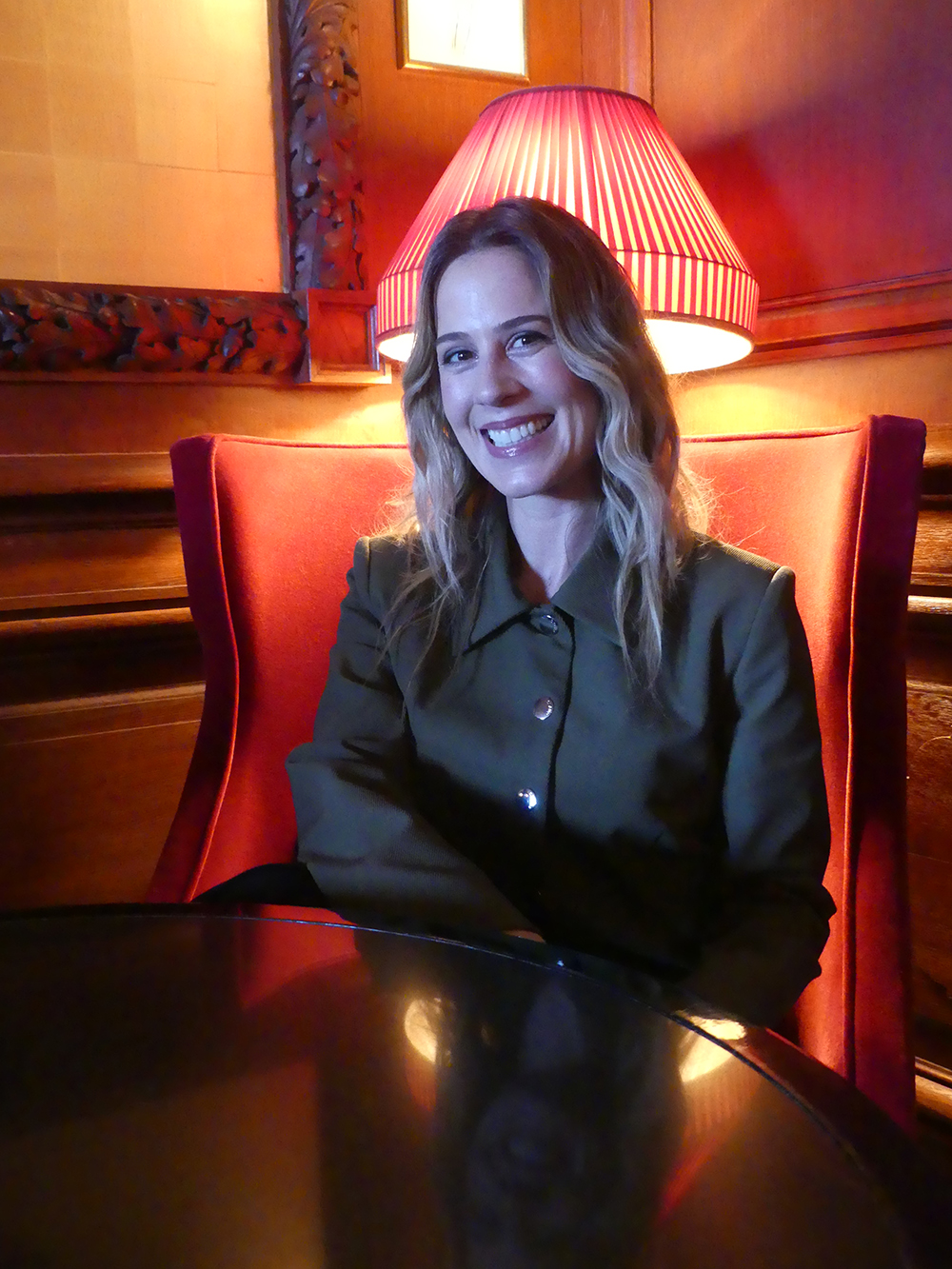
Christie Hall’s 's debut feature film, Daddio , offers an intricate and intimate exploration of human connection, all unfolding within the tight confines of a New York City taxi. Christie Hall's decision to set the film almost entirely inside a cab wasn't just a stylistic choice, but a deliberate narrative decision that allowed her to focus intensely on the psychological and emotional dynamics between the two characters, Girlie and Clark. The confined space becomes a crucible for their interaction, amplifying the tension and intimacy between them, as they traverse the sprawling and vibrant city that remains mostly unseen but omnipresent in their conversation.
For Christie Hall, telling a story within such a limited setting posed significant creative challenges, but it also provided a unique opportunity to delve deeply into the subtleties of dialogue and performance. The physical limitations of the taxi demanded a tight focus on the actors, their expressions, and the gradual shifts in their relationship. The challenge lay in keeping the audience engaged despite the lack of external action, relying instead on the growing emotional intensity of the characters' exchanges. Christie Hall used these limitations to her advantage, creating a film that is driven by character development and dialogue rather than traditional plot mechanics.
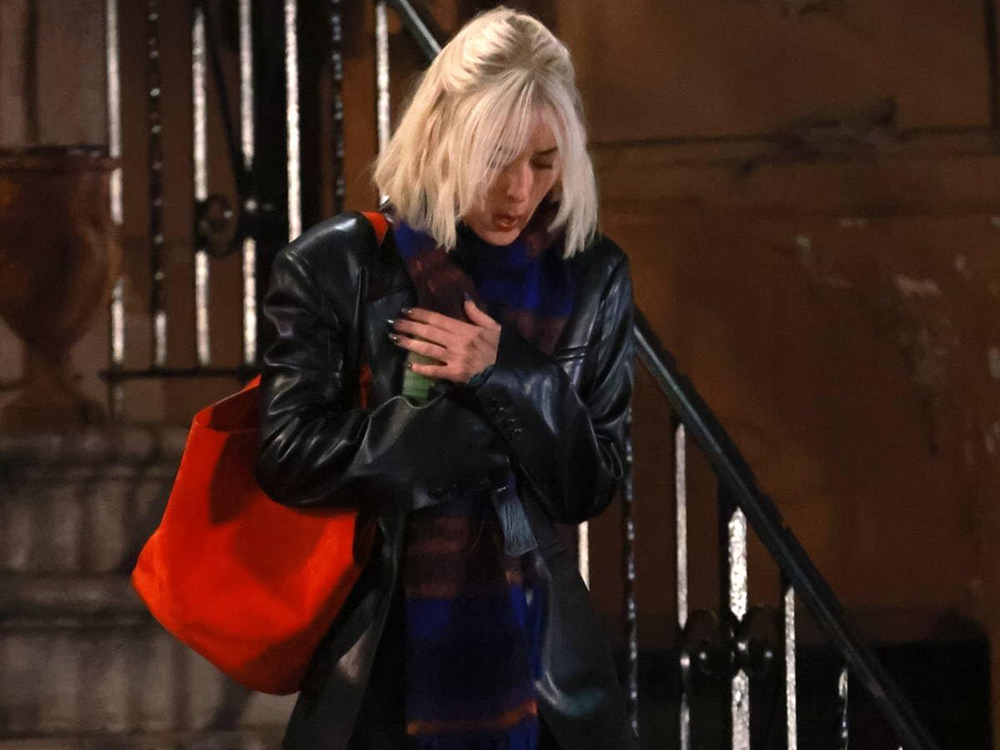
The origins of Daddio as a stage play deeply influenced Christie Hall’s approach to the film. When she first envisioned the story, it was for a theater setting, where the intimacy of the conversation between Girlie and Clark would have been heightened by the proximity of the audience. As the project evolved into a film, Christie Hall had to reconsider how to translate the immediacy and focus of a stage play into the visual language of cinema. This shift required subtle but important adjustments in the script and direction. On stage, the audience’s attention is naturally drawn to the actors, but on film, Christie Hall had to think more carefully about how to use the camera, pacing, and environment to maintain that same level of engagement.
One of the most innovative decisions Christie Hall made was to employ virtual production techniques for the cab scenes, utilizing LED video screens to create the surrounding environment. This choice allowed the actors to remain grounded in the reality of their performances while giving the filmmakers control over the visual backdrop. By simulating the movement of the city outside the cab, the technology created a sense of motion and immersion that wouldn’t have been possible with traditional green screen techniques. It also had a significant impact on the actors' performances. Rather than imagining the world outside, Dakota Johnson and Sean Penn could see it in real-time, which helped them stay connected to the reality of their characters’ situation, lending authenticity to their interactions.
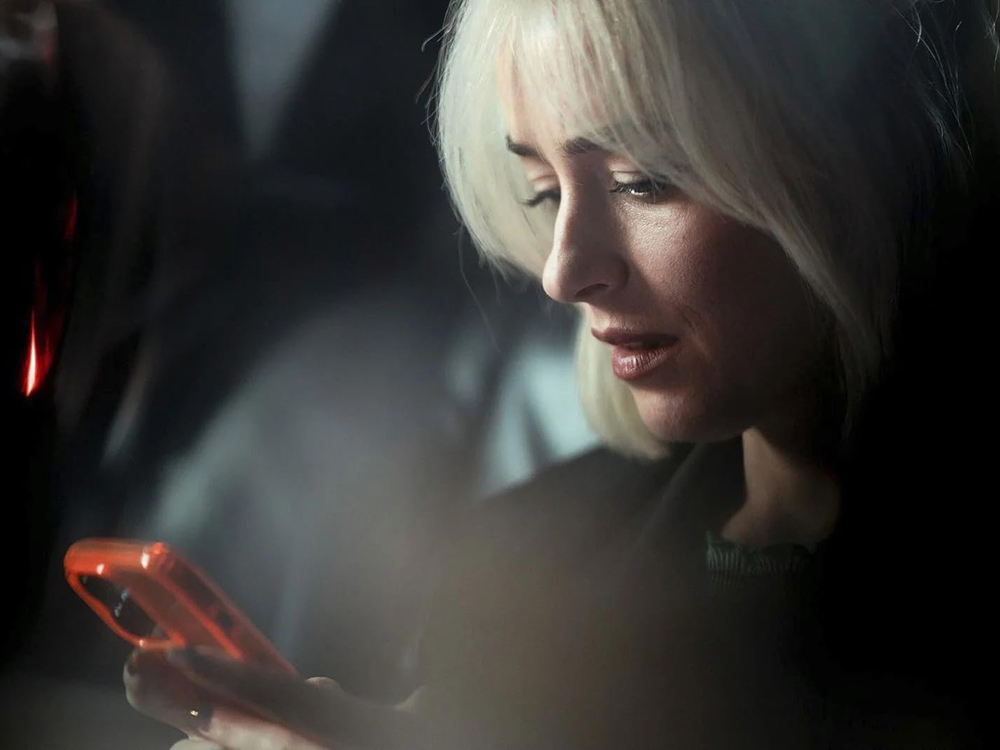
The performances of Dakota Johnson and Sean Penn are at the heart of Daddio . Their on-screen chemistry is palpable, and their dialogue crackles with tension, vulnerability, and confrontation. Johnson, who was instrumental in casting Penn for the role of Clark, worked closely with him to shape their characters’ dynamic. Christie Hall describes the collaboration between Johnson and Penn as central to the film's emotional core. Johnson’s portrayal of Girlie is sharp and emotionally layered, while Penn brings a world-weary intensity to Clark. Christie Hall worked closely with both actors, guiding them through moments of vulnerability and confrontation, allowing their performances to evolve naturally within the confines of the taxi.
One of the most striking aspects of Daddio is the way Christie Hall uses dialogue to reveal the complexity of the characters' inner lives. The film tackles deep themes of loneliness, power dynamics, gender, and vulnerability, all through the lens of a single conversation. Girlie and Clark, though vastly different in their backgrounds and perspectives, slowly begin to peel back the layers of their defenses as they talk. Christie Hall was particularly drawn to the way the intimate setting of the taxi allowed her to explore these themes in a subtle, nuanced way. The power dynamics between men and women, for instance, are constantly shifting throughout the film, but Christie Hall never lets the conversation become didactic or one-sided. Instead, she allows both characters to express their views, often confronting each other in ways that feel raw and honest.
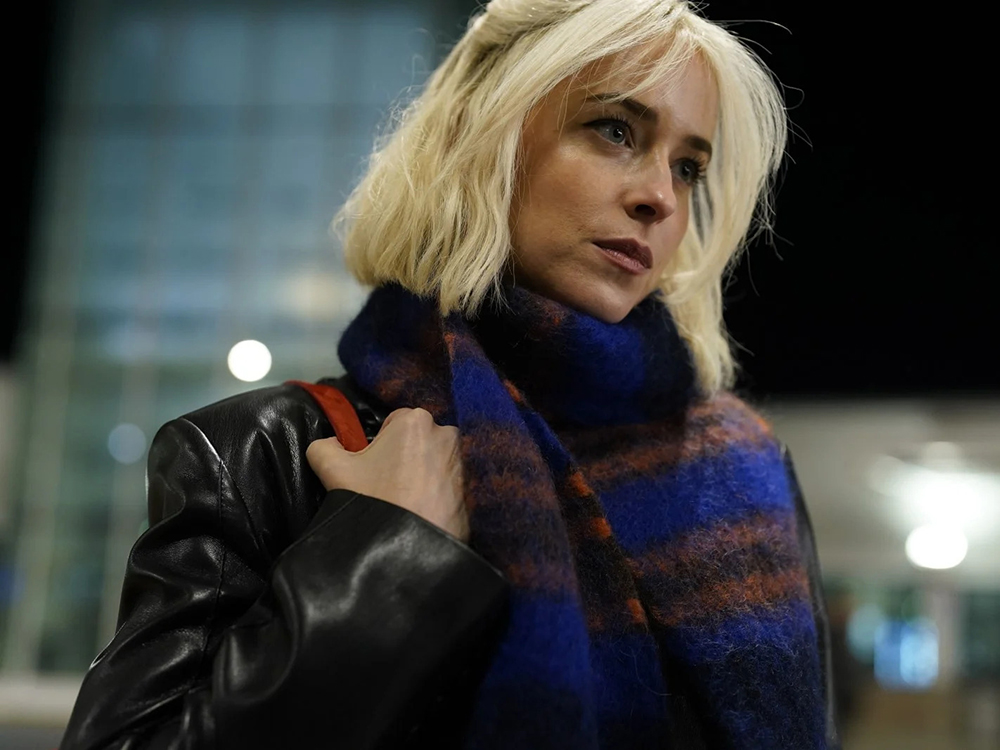
The film's dialogue is both sharp and often confrontational, with moments of tension that give way to unexpected moments of empathy. Christie Hall was careful to script much of the dialogue but also gave Johnson and Penn the freedom to bring their own insights and experiences to their roles. Both actors contributed to shaping the dialogue, and Christie Hall allowed for moments of improvisation where it felt natural. This approach helped to ground the characters in a sense of reality, making their conversations feel less scripted and more like a genuine exchange between two strangers grappling with their own vulnerabilities.
The setting of New York City plays a subtle yet crucial role in the film. While the characters are physically contained within the taxi, the city outside is always present, influencing the mood and the conversation. For Christie Hall, New York represents both the chaos of the world beyond the cab and the isolation that the characters feel within it. The constant motion of the city contrasts with the stillness of the characters’ emotional states, highlighting their loneliness and the barriers they’ve built around themselves. New York becomes a kind of silent third character in the film, reflecting the internal struggles of Girlie and Clark as they navigate their own personal journeys.
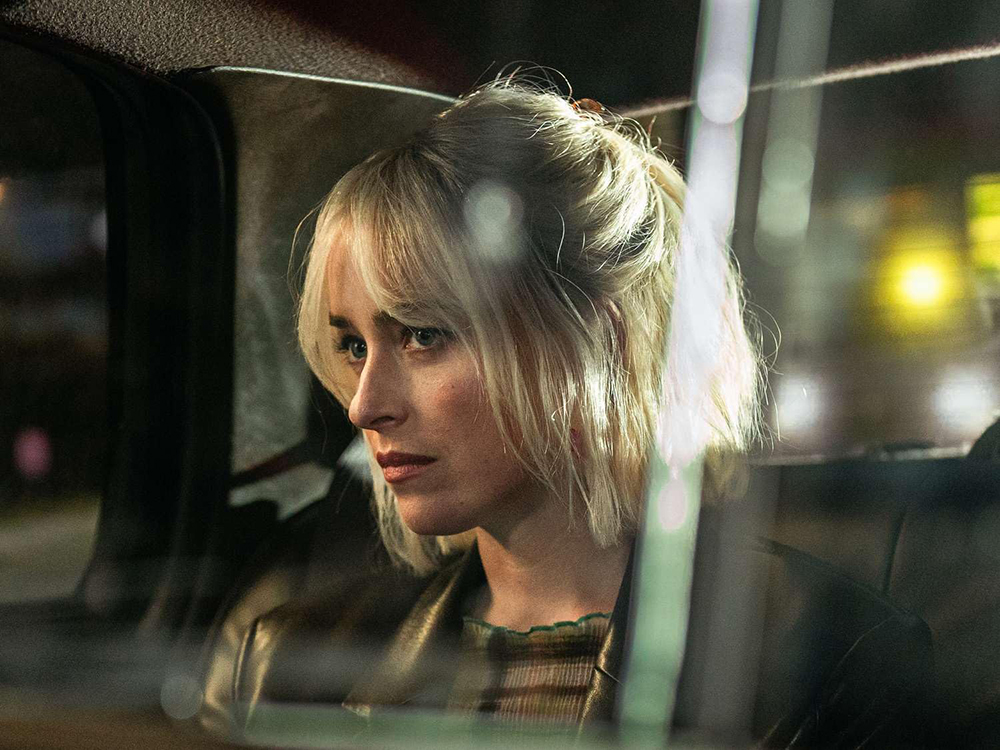
Clark and Girlie, despite their different backgrounds, form an unlikely bond over the course of the film. This bond is not based on shared experiences but rather on a shared sense of vulnerability. Christie Hall wanted to explore the idea that human connection can be found in the most unexpected places, even between two people who seem to have little in common. The turning point in their conversation comes when both characters begin to let down their guard, revealing personal stories that they might not have shared in any other circumstance. Christie Hall’s portrayal of this growing connection is subtle and deeply affecting, showing that empathy and understanding can transcend social and personal barriers.
Generational differences also play a significant role in the film, particularly in how Clark and Girlie view the world. Christie Hall uses their conversation to explore how their perspectives on topics like technology, relationships, and personal growth reflect broader cultural divides. Clark, with his more traditional views, often clashes with Girlie’s more modern outlook, but over time, they begin to find common ground. Christie Hall’s exploration of these generational tensions adds another layer of complexity to the film, highlighting how the gap between generations can sometimes obscure the deeper, more human connections that bind us together.
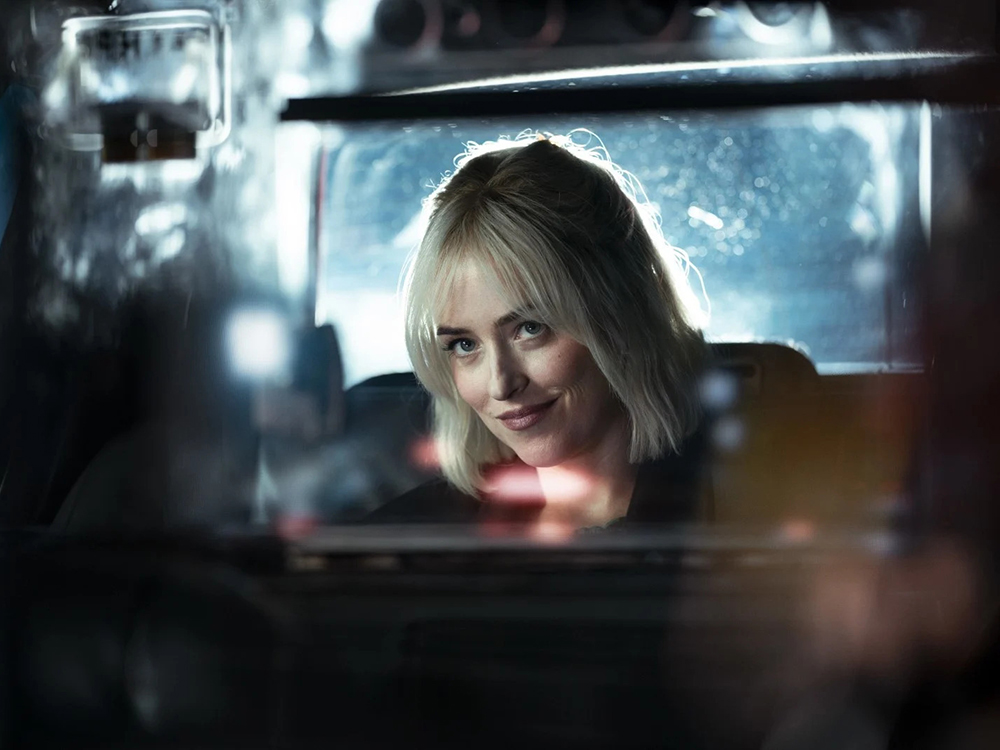
For Christie Hall, transitioning from screenwriting to directing with Daddio was both exciting and challenging. She found that while writing allowed her to craft the characters' voices, directing gave her the chance to shape their physical and emotional presence on screen. The most surprising aspect of the transition, she reflects, was the sheer amount of collaboration required to bring her vision to life. From working with actors like Johnson and Penn to collaborating with the crew on the technical aspects of production, Christie Hall found herself constantly adapting and learning throughout the process.
The film’s pacing, which unfolds almost in real-time, was another area where Christie Hall had to strike a delicate balance. She wanted the pauses and silences between the characters to carry emotional weight, allowing the audience to feel the growing tension and vulnerability without ever losing engagement. The editing process was crucial in maintaining this flow, ensuring that the natural progression of the dialogue was never disrupted by unnecessary cuts or distractions.

The soundtrack, composed by Dickon Hinchliffe, adds another layer to the film’s emotional depth. Christie Hall worked closely with Hinchliffe to create a score that complemented the tone of the film without overpowering it. The music in Daddio is subtle but effective, enhancing the emotional journey of the characters and underscoring the quiet moments of reflection between them. Christie Hall’s vision for the music was clear from the beginning: it needed to serve the story, not dominate it, and Hinchliffe’s composition achieves that balance beautifully.
As Daddio premiered at the Telluride and Toronto Film Festivals, Christie Hall was both excited and nervous to see how audiences would respond to her debut film. The intimate nature of the story, combined with the powerful performances of Johnson and Penn, resonated deeply with viewers, many of whom were struck by the film’s exploration of loneliness, power, and vulnerability. Christie Hall was particularly moved by how audiences connected with the characters’ personal stories, often seeing reflections of their own experiences in the conversations between Girlie and Clark.

Looking forward, Christie Hall’s experience with Daddio has undoubtedly informed her approach to future projects, and talk to us about her past work on the adaptation of It Ends With Us. The lessons she learned about directing, pacing, and working with actors have given her a deeper understanding of the filmmaking process, and she is excited to continue exploring new stories and themes as both a writer and director. Christie Hall’s ability to capture the complexities of human connection and vulnerability will no doubt continue to shape her future work, making her a filmmaker to watch in the years to come.
Due to a sound issue during the interview, we unfortunately encountered difficulties with the audio quality. As a result, we have adapted the interview into a written format to ensure that the valuable insights shared by Christy Hall are still conveyed effectively. We appreciate your understanding and hope you find the written account informative and engaging.
You can discover our exclusive photos on our Flickr page
Synopsis:
A woman taking a cab to JFK engages the cab driver in a conversation about the important relationships in their lives.
Daddio
Written and directed by Christie Hall
Produced by Ro Donnelly, Terry Dougas, Christy Hall, Dakota Johnson, Paris Kassidokostas-Latsis, Emma Tillinger Koskoff
Starring Dakota Johnson, Sean Penn, Marcos A. Gonzalez, Zola Lloyd, Shannon Gannon
Music: Dickon Hinchliffe
Director of photography: Phedon Papamichael
Editing: Lisa Zeno Churgin
Production companies: Hercules Film Fund, TeaTime Pictures, Raindrop Valley, Projected Picture Works, Rhea Films
Distributed by Sony Pictures Classics (United States), Metropolitan FilmExport (France)
Release date: June 28, 2024 (U.S.), December 4 2024 (France)
Running time: 100 minutes

Photos : Boris Colletier / Mulderville

